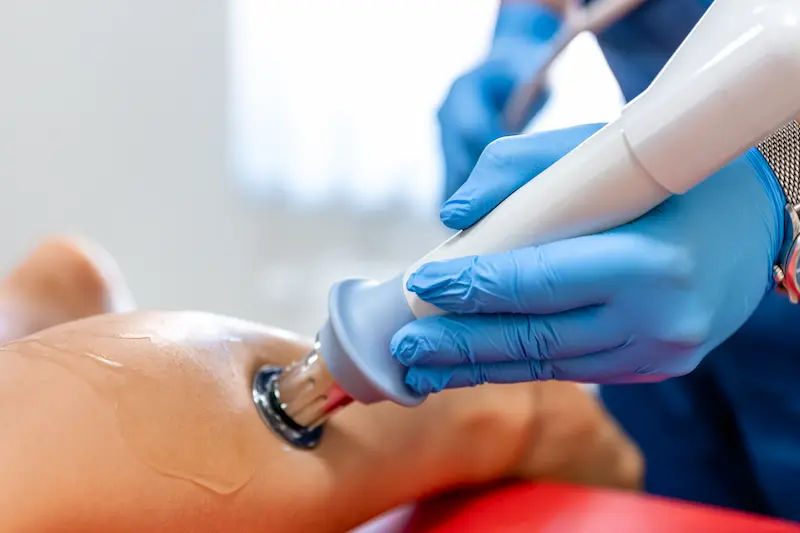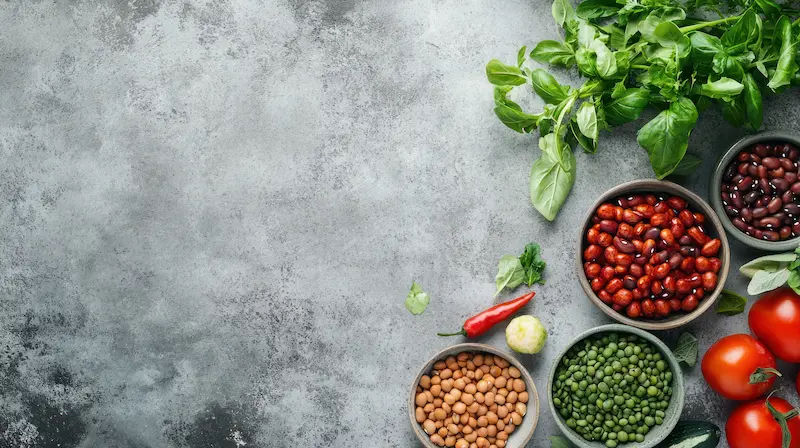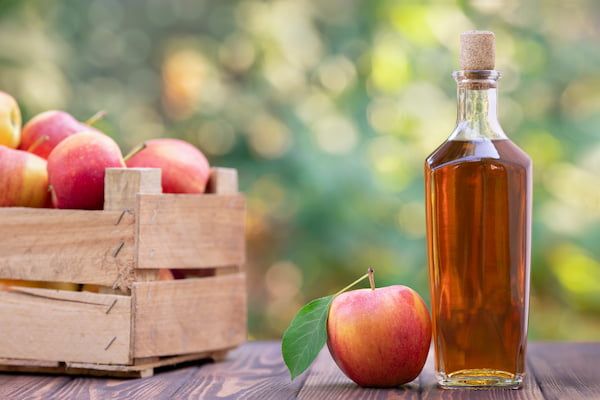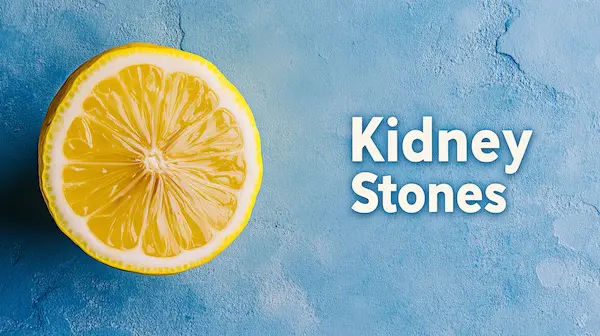Apple Cider Vinegar Effective Dissolving Kidney Stones
Explore whether apple cider vinegar can help dissolve kidney stones, how it may work, and safe ways to use it alongside medical treatments.

Written by Dr. Siri Nallapu
Reviewed by Dr. D Bhanu Prakash MBBS, AFIH, Advanced certificate in critical care medicine, Fellowship in critical care medicine
Last updated on 13th Jan, 2026
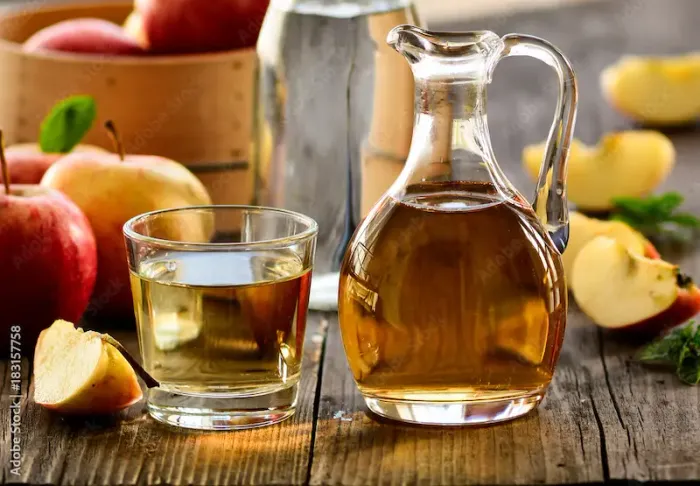
Introduction
If you’ve heard that apple cider vinegar can dissolve kidney stones, you’re not alone. The idea is everywhere online, and many people try it before seeing a doctor. But what does the evidence actually say? Can apple cider vinegar help a kidney stone pass faster, or prevent new stones from forming? This guide separates myth from reality and explains how to use apple cider vinegar safely—if you choose to—alongside proven, doctor-recommended strategies for kidney stone prevention. You’ll learn how stones form, which types of stones respond to natural approaches, where apple cider vinegar may fit in, and what to do when pain strikes. We’ll also compare apple cider vinegar to better-studied options like lemon juice (citrate), review risks and interactions, and share a practical hydration and nutrition plan. If symptoms persist beyond two weeks, consult a doctor online with Apollo 24|7 for further evaluation.
Kidney Stones 101: What They Are and Why They Form
Kidney stones are hard mineral deposits that form in your kidneys and can travel down the urinary tract. The most common type, calcium oxalate, accounts for roughly 70–80% of stones. Others include calcium phosphate, uric acid, struvite (infection-related), and rare cystine stones. Understanding your stone type matters because treatments and prevention strategies differ—what helps a uric acid stone may not help a calcium oxalate stone.
How stones form: Stones form when urine becomes concentrated and certain substances—like calcium, oxalate, or uric acid—exceed their solubility, crystallise, and grow. Low urine volume, low urinary citrate, high sodium intake, excess animal protein, and high oxalate intake can all increase risk. Some medical conditions (e.g., gout, bowel disease), medicines, and genetics also play a role
Symptoms and when to seek urgent care: Classic symptoms include sharp flank pain radiating to the groin, blood in urine, nausea/vomiting, and urinary urgency. Seek urgent care if you have fever or chills (possible infection), severe persistent pain, inability to keep fluids down, a single kidney, or symptoms lasting more than a few days. Stones larger than ~6–7 mm are less likely to pass without medical help. If symptoms persist beyond two weeks, consult a doctor online with Apollo 24|7 for further evaluation. For suspected blockage with infection (fever, chills, severe pain), go to emergency care immediately.
Apple Cider Vinegar 101: What’s In It and Why People Use It
Apple cider vinegar (ACV) is fermented apple juice containing acetic acid (typically 4–6%), water, small amounts of minerals, and sometimes the “mother,” a mix of yeast and bacteria strands. People use ACV for digestion, blood sugar support, and weight management—claims that have mixed evidence. With kidney stones, online advice centres on the idea that ACV can “break down” stones.
Acetic acid vs citric acid—important difference: ACV’s primary acid is acetic acid. By contrast, lemon and lime juices provide citric acid, which can raise urinary citrate—a known inhibitor of calcium stone formation. This biochemical difference is critical: lemon juice has stronger evidence for stone prevention than vinegar.
Consult Top Specialists
Does Apple Cider Vinegar Dissolve Kidney Stones? The Evidence
What research says (and doesn’t): There are currently no high-quality randomised controlled trials showing that apple cider vinegar dissolves existing kidney stones in humans. Some consumer health sites note preliminary or indirect evidence that dietary acids can influence urine chemistry, but human data specific to ACV and stone dissolution are lacking. In vitro studies and animal data do not translate reliably to actual stone passage in people.
What top medical groups recommend: Major authorities, including the National Institute of Diabetes and Digestive and Kidney Diseases (NIDDK), American Urological Association (AUA), and Mayo Clinic, emphasize proven strategies: hydration, dietary sodium reduction, normal calcium intake, limiting oxalate-rich foods, moderating animal protein, and increasing urinary citrate (often via lemon/lime juice or potassium citrate supplements). None endorse ACV as a stone-dissolving therapy. Notably, uric acid stones can sometimes be dissolved by alkalinising urine with medications like potassium citrate, not by acetic acid.
ACV is not a proven therapy to dissolve kidney stones. At best, it may be used as a personal preference beverage additive within an overall stone-prevention plan. If your condition does not improve after trying these methods, book a physical visit to a doctor with Apollo 24|7.
Potential Ways Apple Cider Vinegar Might Help—And Limitations
Hydration and behavioural cues: For some people, adding a splash of ACV to a large water bottle encourages more regular sipping. Hydration is the most impactful DIY strategy to reduce stone risk because higher urine volume dilutes stone-forming salts. If a tart flavour helps you drink more, that’s a plausible indirect benefit. But lemon or lime water may offer an added citrate advantage.
Possible effects on urine chemistry: There’s speculation that vinegar could modestly influence urine parameters. However, acetic acid is not the same as citric acid, and clinical evidence that ACV increases urinary citrate or beneficially alters urine pH in ways that reduce stone risk is weak or absent in human trials. Further, excessive vinegar could lower tooth enamel pH, irritate the oesophagus, or affect potassium levels—downsides that can outweigh hypothetical benefits.
Where ACV doesn’t help: It won’t physically “break” a calcium oxalate stone. It won’t replace medical expulsive therapy for a lodged ureteral stone. It won’t treat a urinary tract infection or fever associated with a stone; those require urgent care.
How to Use Apple Cider Vinegar Safely (If You Choose To)
Dilution, timing, and maximum daily amount:
• Start small: 1 teaspoon (5 mL) diluted in at least 8–12 ounces (250–350 mL) of water once daily.
• If tolerated, some people use up to 1–2 tablespoons (15–30 mL) daily, split into two doses, each diluted in a full glass of water. Do not exceed 2 tablespoons per day without medical advice.
• Rinse your mouth or use a straw to protect dental enamel; avoid taking it straight (undiluted).
• Avoid right before bed to reduce reflux risk.
Who should avoid it and drug interactions:
• Avoid if you have uncontrolled GERD, active esophagitis, a history of oesophagal strictures, chronic nausea/vomiting, or significant tooth enamel erosion.
• Use caution if you have diabetes (may affect glucose and insulin sensitivity), chronic kidney disease, low potassium, or are on medications like insulin, sulfonylureas, diuretics (especially potassium-wasting), digoxin, or ACE inhibitors—speak with your doctor first.
• Capsules/gummies can vary; choose reputable brands and verify acetic acid content. Watch added sugars.
If symptoms persist beyond two weeks or pain is severe, consult a doctor online with Apollo 24|7 for further evaluation. For labs like potassium or metabolic panels, Apollo 24|7 offers convenient home collection.
Proven Strategies to Prevent Kidney Stones
Fluid goals and smart beverage choices: Aim for enough fluid to produce at least 2.0–2.5 litres of urine daily—often requiring 2.5–3.0 litres of fluid intake, more if you sweat heavily. Water is best. Helpful options include lemon or lime water (for urinary citrate), unsweetened herbal tea, and high-water foods. Limit sugary drinks and colas (phosphoric acid may increase risk in some studies).
Sodium, calcium, oxalate, and animal protein:
• Sodium: Limit to about 1,500–2,000 mg sodium/day. High sodium increases urinary calcium excretion.
• Calcium: Don’t restrict dietary calcium unless your doctor tells you to. Normal calcium intake (1,000–1,200 mg/day from food) binds oxalate in the gut and lowers urinary oxalate.
• Oxalate: Reduce high-oxalate foods if you form calcium oxalate stones—e.g., spinach, almonds, beets, rhubarb. Pair moderate-oxalate foods with calcium sources in the same meal to bind oxalate.
• Animal protein: Excess animal protein can increase urinary calcium and uric acid and lower citrate; moderate portions are advised.
Citrate from lemon/lime vs ACV: Lemon and lime juices provide citric acid, which can raise urinary citrate, a key inhibitor of calcium stone formation. “Lemonade therapy” has shown increases in urinary citrate in small studies. Vinegar (acetic acid) does not supply citric acid.
Consult Top Specialists
Passing a Stone: What Helps, What Hurts, and When to See a Doctor
What helps: Hydration, movement (walking if tolerable), and heat packs for muscle relaxation can be supportive. Over-the-counter pain relief (e.g., NSAIDs) may help if your doctor says they are safe for you. Medical expulsive therapy with tamsulosin can be considered for distal ureteral stones (often 5–10 mm), though evidence is mixed; discuss with a clinician. Strain your urine to catch the stone for analysis; knowing the type guides prevention.
What hurts: Forcing excessive fluids during severe obstruction can increase pain; drink steadily but don’t chug if it worsens symptoms. Avoid high-sodium or high-oxalate foods during an acute episode.
Warning signs: Fever, chills, severe and unrelenting pain, vomiting with inability to keep liquids down, decreased urine output, or pain in someone with a single kidney—seek urgent care. If you suspect a stone and pain persists beyond a few days, consult a doctor online with Apollo 24|7; you may need imaging (ultrasound or CT) and medications. If lab tests are advised (electrolytes, uric acid, kidney function), Apollo 24|7 offers home collection.
Lemon Juice vs Apple Cider Vinegar: Which Is Better for Stones?
The role of urinary citrate: Citrate binds calcium in urine and reduces crystal formation. Lemon and lime juices are rich in citric acid and have been shown to raise urinary citrate in small clinical studies, sometimes called “lemonade therapy”. This is why many clinicians recommend lemon/lime water for calcium oxalate stone formers.
ACV’s role: Apple cider vinegar supplies acetic acid, not citric acid. There’s no robust evidence that ACV meaningfully increases urinary citrate. If you enjoy ACV, you can include it safely as a flavour adjunct, but prioritising lemon or lime for citrate is more evidence-based.
Practical ways to get more citrate:
• 60–120 mL (2–4 oz) of lemon or lime juice daily diluted in water across the day, as tolerated, can increase urinary citrate for some people.
• If your doctor recommends it, prescription potassium citrate is a targeted, proven approach for low urinary citrate or uric acid stones.
A 7-Day Kidney-Friendly Hydration and Snack Plan (ACV optional)
Daily schedule template:
• Morning: 500 mL water with 1–2 tbsp lemon or lime juice (for citrate). Optional: add 1 tsp ACV if desired and tolerated.
• Midday: 250–300 mL water before lunch; herbal tea after.
• Afternoon: 500 mL water with a pinch of electrolyte (low-sodium options); cucumber slices for hydration.
• Evening: 250–300 mL water with or without citrus; avoid large volumes right before bed if reflux is an issue.
Snack ideas:
• Low-oxalate fruits (apples, grapes, melons), yoghurt (calcium), small portions of nuts other than almonds (almonds are high oxalate), veggie sticks with hummus. Pair moderate-oxalate items with calcium sources.
Meal tips:
• Keep sodium modest (<2,000 mg/day).
• Get calcium from food (dairy or fortified alternatives).
• Choose lean proteins and include plant proteins; don’t overdo animal protein.
Adjust for heat/sweat: Increase fluids on hot or active days. Track your urine colour (pale yellow is the goal).
Measuring What Matters: Urine pH, Volume, and Citrate
At-home checks vs lab tests: Simple at-home strategies include tracking total fluid intake and observing urine colour (aim for light yellow). Some people use urine pH strips; while pH can guide uric acid stone risk (acidic urine), it’s only one piece of the puzzle.
When to get a 24-hour urine test: If you’ve had recurrent stones or a large or complicated stone, a 24-hour urine test can pinpoint risk factors—low urine volume, low citrate, high calcium, high oxalate, high uric acid—and guide precise prevention (dietary changes, potassium citrate, thiazides). Apollo 24|7 offers convenient home collection for tests like metabolic panels; ask your clinician whether a 24-hour urine study is appropriate.
Special Situations: Diabetes, GERD, CKD, Pregnancy
• Diabetes: ACV may modestly affect post-meal glucose in some studies, but it can also interact with diabetes medications. Discuss with your clinician before using ACV regularly.
• GERD/Esophagitis: Acidic drinks can worsen reflux or cause oesophagal irritation. Avoid or minimise ACV.
• Chronic kidney disease (CKD): Be cautious with ACV and over-the-counter supplements. Kidney function, potassium balance, and medication interactions matter. Work with your nephrologist.
• Pregnancy: Safety data on regular ACV supplementation are limited; focus on proven hydration and nutrition.
Consult Top Specialists
Conclusion
Apple cider vinegar has earned its reputation as a kitchen multitasker, but it’s not a magic bullet for kidney stones. There’s no solid clinical evidence that it dissolves existing stones, and relying on ACV alone can delay the care you might need. If you enjoy the taste and it helps you drink more water, you can include small, well-diluted amounts safely—just remember that lemon or lime juice offers a clearer path to increasing urinary citrate, a proven protective factor against calcium oxalate stones. The most reliable approach combines robust hydration, smart dietary choices, and, when indicated, targeted therapies like potassium citrate or thiazides based on your stone type and 24-hour urine results. If symptoms persist beyond two weeks, consult a doctor online with Apollo 24|7, or book a physical visit to a doctor with Apollo 24|7 for tailored guidance. And if you need labs, Apollo 24|7 offers convenient home collection. With the right plan—and realistic expectations—most people can lower their risk and navigate kidney stones with more confidence.
Consult Top Specialists

Dr. Manju Kamal
Nephrologist
12 Years • MBBS,MD(General Medicine), DNB,DM(Nephrology)
Angamaly
Apollo Hospitals Karukutty, Angamaly
Dr Ch Sashidhar
Nephrologist
20 Years • MBBS, MD General Medicine, DNB, Nephrology
Secunderabad
Apollo Hospitals Secunderabad, Secunderabad

Dr. Jai Kumar Kriplani
Nephrologist
13 Years • M.D. (Medicine), DNB (Nephrology)
Indore
Apollo Hospitals Vijay Nagar, Indore
(50+ Patients)

Dr. Deepesh V
Nephrologist
8 Years • MBBS MD DNB
Bengaluru
Apollo Clinic, JP nagar, Bengaluru

Dr Vinay Kumar A V
Nephrologist
8 Years • MBBS, MD - General Medicine, DM - Nephrology
Bilaspur
Apollo Hospitals Seepat Road, Bilaspur
Consult Top Specialists

Dr. Manju Kamal
Nephrologist
12 Years • MBBS,MD(General Medicine), DNB,DM(Nephrology)
Angamaly
Apollo Hospitals Karukutty, Angamaly
Dr Ch Sashidhar
Nephrologist
20 Years • MBBS, MD General Medicine, DNB, Nephrology
Secunderabad
Apollo Hospitals Secunderabad, Secunderabad

Dr. Jai Kumar Kriplani
Nephrologist
13 Years • M.D. (Medicine), DNB (Nephrology)
Indore
Apollo Hospitals Vijay Nagar, Indore
(50+ Patients)

Dr. Deepesh V
Nephrologist
8 Years • MBBS MD DNB
Bengaluru
Apollo Clinic, JP nagar, Bengaluru

Dr Vinay Kumar A V
Nephrologist
8 Years • MBBS, MD - General Medicine, DM - Nephrology
Bilaspur
Apollo Hospitals Seepat Road, Bilaspur
Consult Top Specialists

Dr. Manju Kamal
Nephrologist
12 Years • MBBS,MD(General Medicine), DNB,DM(Nephrology)
Angamaly
Apollo Hospitals Karukutty, Angamaly
Dr Ch Sashidhar
Nephrologist
20 Years • MBBS, MD General Medicine, DNB, Nephrology
Secunderabad
Apollo Hospitals Secunderabad, Secunderabad

Dr. Jai Kumar Kriplani
Nephrologist
13 Years • M.D. (Medicine), DNB (Nephrology)
Indore
Apollo Hospitals Vijay Nagar, Indore
(50+ Patients)

Dr. Deepesh V
Nephrologist
8 Years • MBBS MD DNB
Bengaluru
Apollo Clinic, JP nagar, Bengaluru

Dr Vinay Kumar A V
Nephrologist
8 Years • MBBS, MD - General Medicine, DM - Nephrology
Bilaspur
Apollo Hospitals Seepat Road, Bilaspur
More articles from Kidney stones
Frequently Asked Questions
1) Does apple cider vinegar dissolve kidney stones naturally?
There’s no strong human evidence that ACV dissolves stones. For uric acid stones, urine alkalinization with potassium citrate—not acetic acid—is the proven approach. Use ACV, if at all, as a flavouring within a broader kidney stone prevention plan.
2) What is a safe ACV dosage for kidney stones?
Start with 1 teaspoon diluted in 8–12 oz water daily; do not exceed 1–2 tablespoons per day without medical advice. Always dilute and protect your teeth. Avoid if you have reflux, oesophagal problems, or certain medical conditions.
3) Lemon juice vs apple cider vinegar for kidney stones: which is better?
Lemon/lime juices (citric acid) can raise urinary citrate, which helps prevent calcium oxalate stones. ACV (acetic acid) doesn’t supply citrate and lacks strong evidence for stone prevention.
4) What drinks are best for kidney health to prevent stones?
Water is best, along with lemon/lime water for citrate. Limit sugary drinks and colas. If you enjoy ACV, use small, diluted amounts as a flavouring, not a treatment.
5) When should I see a doctor for a kidney stone?
Urgently for fever, chills, severe or persistent pain, vomiting, or low urine output. If symptoms persist beyond two weeks, consult a doctor online with Apollo 24|7. Consider a 24-hour urine test if you have recurrent stones.
